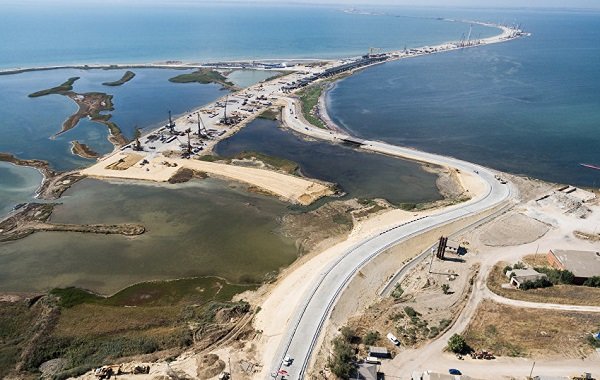Does Tehran say yes to Crimea proposal?

At no point of time have relations between Tehran and Moscow been so close. More than anything else, this political proximity has been strengthened by Russia’s role in the nuclear deal between Iran and world powers.
Other instances of cooperation are also noteworthy.
One is the Syrian war. Tehran and Moscow both have been unfailingly backing President Bashar al-Assad since 2011.
Lately they have shown a more consistent performance in helping the Syrian army force militants out of swathes of the Syrian territory with Russia conducting heaviest airstrikes.
Another high point in Tehran-Moscow relations was the recent accomplishment of the S-300 deal, unconcluded since 2007.
Last week Tehran’s Ambassador to Russia Mehdi Sanai announced Iran had received all S-300 battalions Russia had to deliver under the respective agreement.
Officials of the two sides have hailed as strategic this strong cooperation background within a short period of time.
However, this should not be taken to mean that the two have the same national interests and share the same stance on virtually every challenging issue, one being the issue of Crimea.
Equating strategic cooperation with equal national interests is erroneous.
The annexation has been and continues to be a sticking point between Russia and the European Union, meaning that it is primarily a Russian-European concern, having nothing to do with Tehran. Surprisingly, this is the logic behind the letter by Deputy Chief of the Russian State Duma Evgeny Fedorov to the Iranian parliament to become the seventh country to recognize the annexation of Crimea to Russia.
Although the Iranian parliament has not issued a rejoinder yet, but “no, we won’t” is most likely to be the case. And this is quite logical.
The annexation has been and continues to be a sticking point between Russia and the European Union, meaning that it is primarily a Russian-European concern, having nothing to do with Tehran.
Iran’s recognition of the Crimea annexation is neither politically defendable, nor strategically rational.
At the back of the nuclear deal, Tehran has been following a different path in its foreign policy in a bid to balance relations with key international players, including state members of the EU.
Signs are already evident.
Tehran and London appointed ambassadors, ending five years of cold relations.
The Iranian Foreign Ministry has announced it will kick-start human rights negotiations with the EU in December.
In a resolution passed on Monday with a majority vote, the EU foresaw a normalization of the bloc’s ties with Iran.
Also, a report by EU titled “An EU strategy for relations with Iran after the nuclear deal” outlines the potential for a more structured and strategic relationship between the European Union and the Islamic Republic of Iran following the Joint Comprehensive Plan of Action (JCPOA).
Increasing relations between Tehran and the EU will certainly influence the bloc’s, inter alia, dependence on Russia’s energy resources, and Moscow simply does not want this to happen.
Also, for Iran the European nexus acts as a political lever in its standoff on Middle East issues with war-mongering countries such as Saudi Arabia.
Thus, maintaining good ties with the EU can empower Iran as Russia’s good buddy in issues of interest, not the least of which being the Syrian crisis when the two stand at loggerheads with Saudi Arabia.
AK/PA
